
How Swiss personalities are sponsoring Burmese protesters
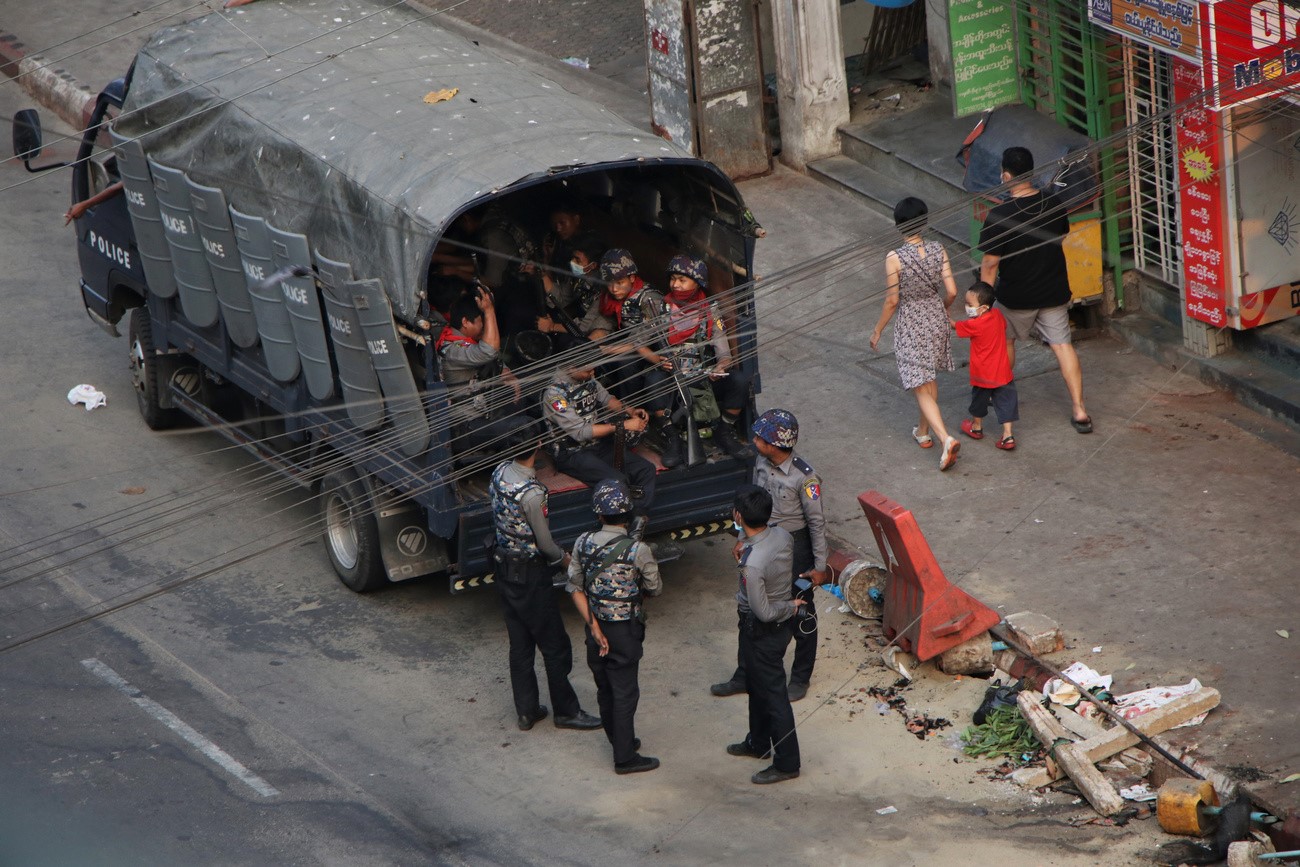
Swiss personalities are lending their names with the hope of protecting protesters against the military junta in Myanmar.
Elisabeth Decrey, a former member of the Geneva parliament and driving force behind various humanitarian organisations and associations, has taken on a new challenge: she is urging prominent Swiss figures to demonstrate virtually alongside protesters in Myanmar. On the ground, the protester will wear a badge with the name of the Swiss sponsor, which reads: “Message to the army or police: Mr. X or Ms. Y, from Geneva (or elsewhere), is demonstrating with me today. If you arrest, injure or kill me, you are also arresting, injuring or killing them.”
If anything happens to the protester, the sponsor is informed and can then spread the word through social networks, the media or friends.
A series of daily nationwide protests in Myanmar began in early 2021 in opposition to a military coup on February 1st. As of April 12th 710 civilians of which 44 were children have been killed by police and at least 3000 people detained.
“Violations of human rights lead to armed struggle”
As Decrey explains: “protesting, and communicating (in Myanmar), have become increasingly difficult: WhatsApp barely functions, and the internet is blocked. However, I’m carrying on (with my initiative), above all to encourage the Burmese, who are desperate at the international community’s inaction. So far, I have managed to involve around 30 Swiss personalities.”
One of these is Carlo Sommaruga, a member of the Swiss Senate’s Foreign Affairs Committee. “It is important to show individual solidarity with the protesters, who gain some protection through our action. It is also a message to the junta: personalities and parliamentarians around the world are mobilised in support of the opposition filling the streets. Action of this kind was already undertaken for Belarus, but what is happening in Myanmar is much more violent.”
Most of the protests are still largely peaceful, but observers on the ground note that young people are joining the armed forces of some ethnic groups to receive military training. The country has around 130 officially recognized ethnic groups, with the Burmese (Bamar) comprising the majority at 75%. “Violations of human and minority rights lead to armed struggle,” says Decrey. Through her work with Geneva Call, an NGO she co-founded in 1998, she has seen how peaceful protests escalate into violence. “In Syria, people demonstrated peacefully to start with. In Colombia, the guerrillas were born of protests by farmers whose land had been stolen. The Kurds were not even allowed to speak their own language. In Myanmar, the situation is dire and could escalate into civil war at any moment.”
“New armed resistance is inevitable”
Aje, a Burmese activist, confirms this. “For now, we are largely peaceful, but we have to face the facts: in order to bring down the military junta, new armed resistance is inevitable. Myanmar is a very resource-rich country, but the money ends up in the pockets of the military, who own the country’s two main conglomerates, the Myanmar Economic Corporation (MEC), which is active mainly in mining, manufacturing and telecommunications, and the Myanmar Economic Holdings Limited (MEHL), involved in banking, construction, mining, agriculture, tobacco and agribusiness. Both entities, moreover, benefit from the support of China and Russia. We cannot just sit around and wait. We hope that the ethnic groups’ armed organizations can lead this fight with the people of Myanmar.”
She adds that almost all the private media that sprang up following the country’s democratic opening have now been banned by the junta and are only active online. According to her, most of the journalists are on the run, hunted down by the military.
A group of parliamentarians, who were elected last November and oppose the coup, has set up a parallel civil government called the CRPH (Committee Representing Pyidaungsu Hluttaw, the Burmese bicameral parliament). “This is our legitimate government and Burmese around the world are funding it,” says Aje. “Foreign governments should also fund it and declare that they recognize it as Myanmar’s only legitimate government.”
On April 15, one of the protesters sponsored by Sommaruga was injured while on his scooter and taken in by the police. His friends haven’t heard from him since. They worry he has been tortured and killed.
“I was aggressed and injured by the junta, bought to the police station whilst I was protesting “virtually” to defend democracy”, Sommaruga wrote on his Facebook page.
The Swiss response to the military coup
The Swiss cabinet has suspended development aid to Myanmar, maintaining only emergency aid. It has also adopted sanctions against 11 members of the military junta. Any assets in Switzerland belonging to the commander-in-chief of the army, Min Aung, nine high-ranking officers and the chairman of the Electoral Commission have been frozen, and these people can no longer travel to Switzerland. Aligning itself with the EU, the Swiss government is targeting only the military, while the US and UK are going further, also sanctioning companies controlled by the junta.
The issue has been formally raised four times in parliament since the military coup on February 1. Laurence Fehlmann, president of the Swiss-Burmese Association, and who is taking part in the virtual sponsorship campaign, called on the cabinet (in an interpellation, yet to be dealt with) to ensure that Swiss companies active in Myanmar demonstrate due diligence in no longer buying products from conglomerates controlled by the army, especially in the field of jewels. She also urged Switzerland to commit to bringing junta officials before the International Criminal Court.
During question time, Nicolas Walder called on the cabinet to make sure that the activities of Swiss companies were not linked to two conglomerates MEC and MEHL controlled by the military. The cabinet replied that it expected Swiss companies operating in Myanmar to exercise due diligence.

More
‘As long as people are protesting in the street, the coup isn’t over’

In compliance with the JTI standards
More: SWI swissinfo.ch certified by the Journalism Trust Initiative





















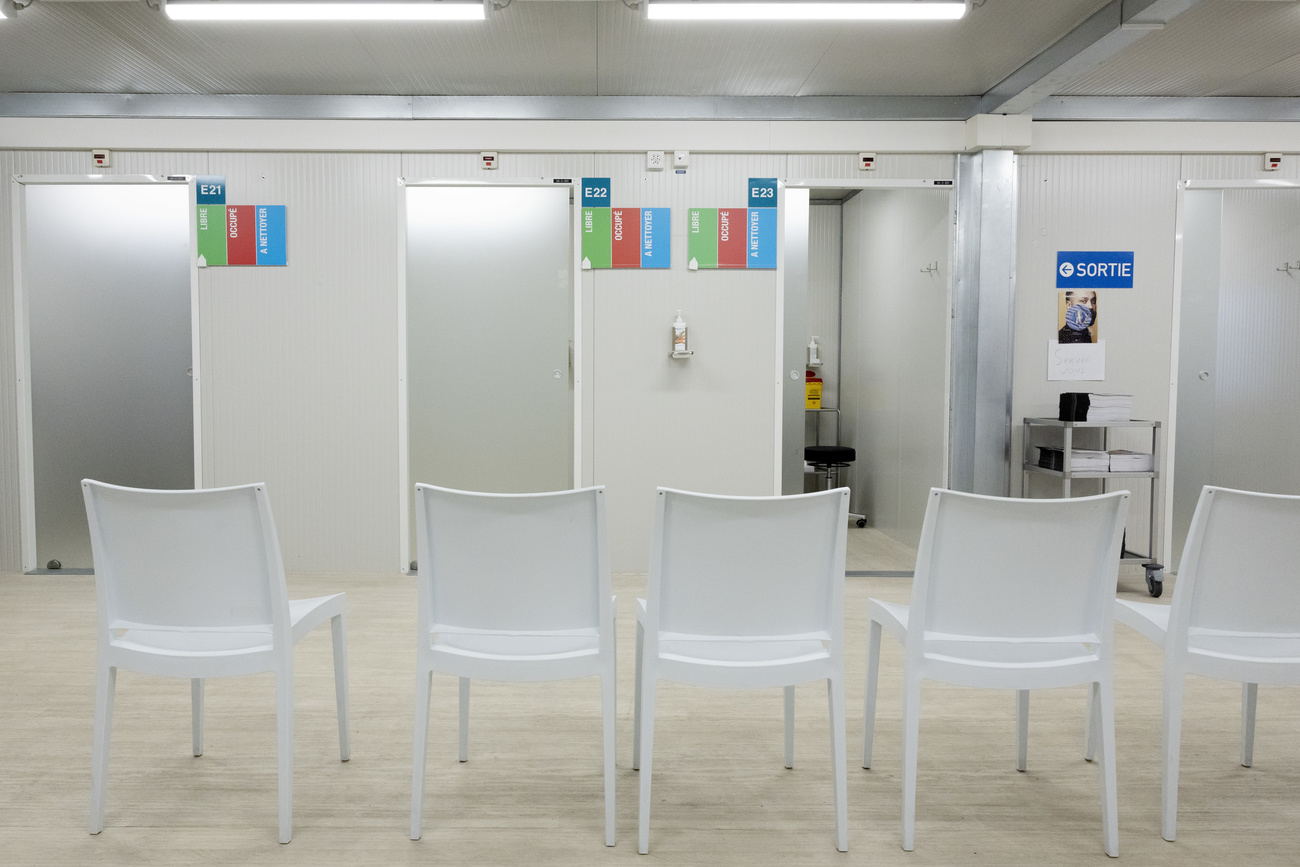












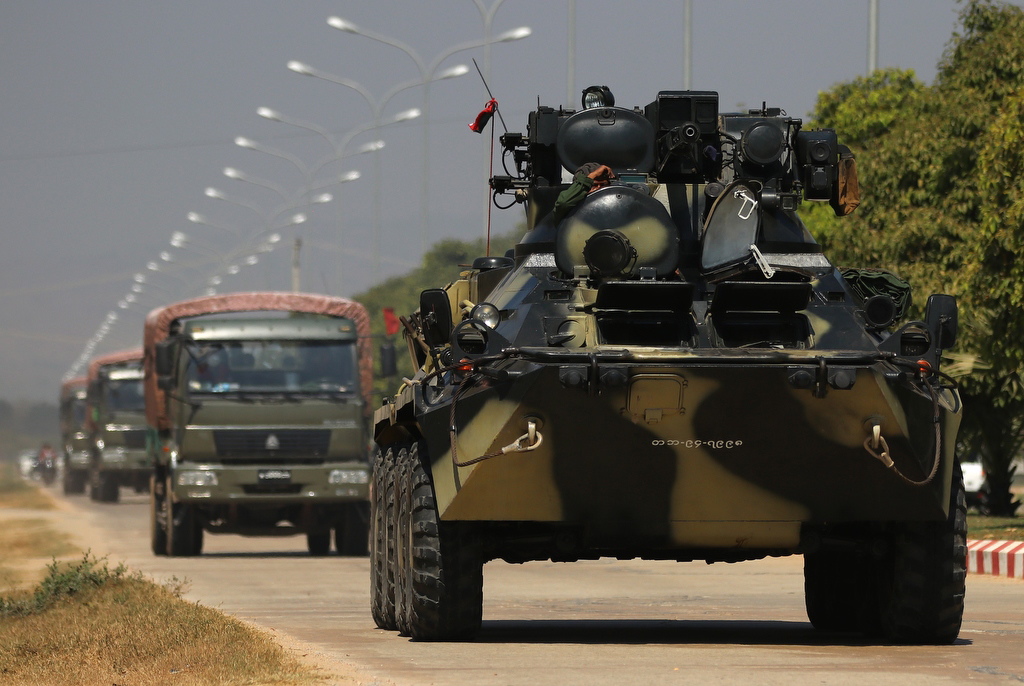
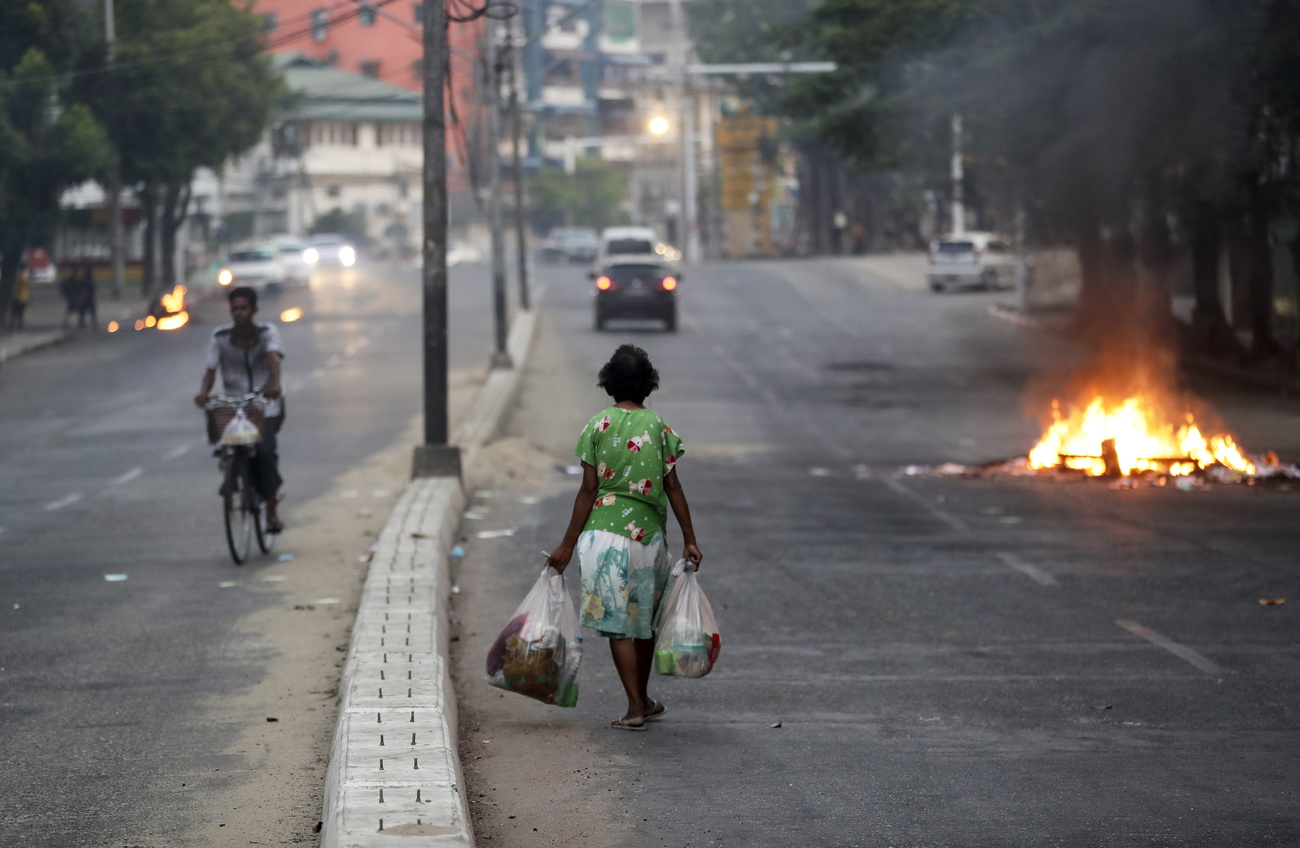

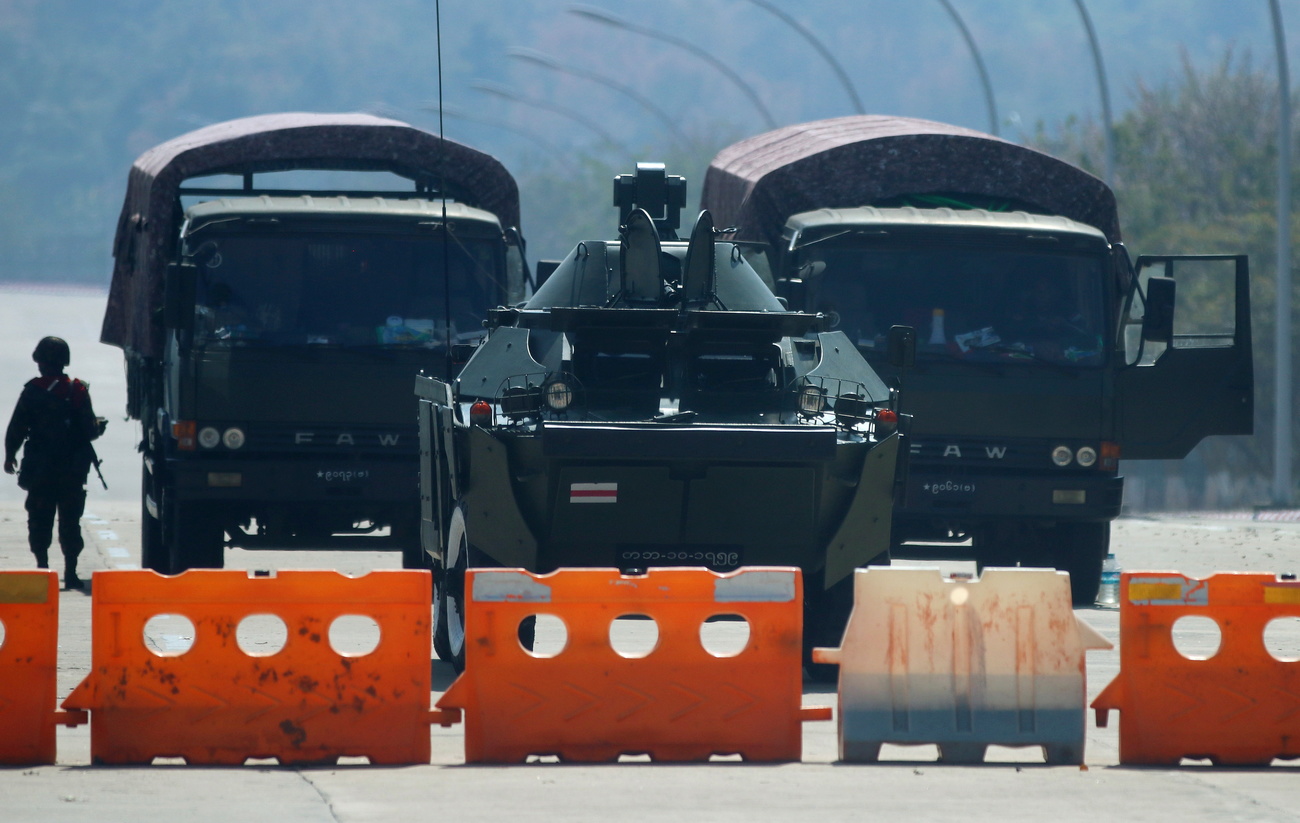
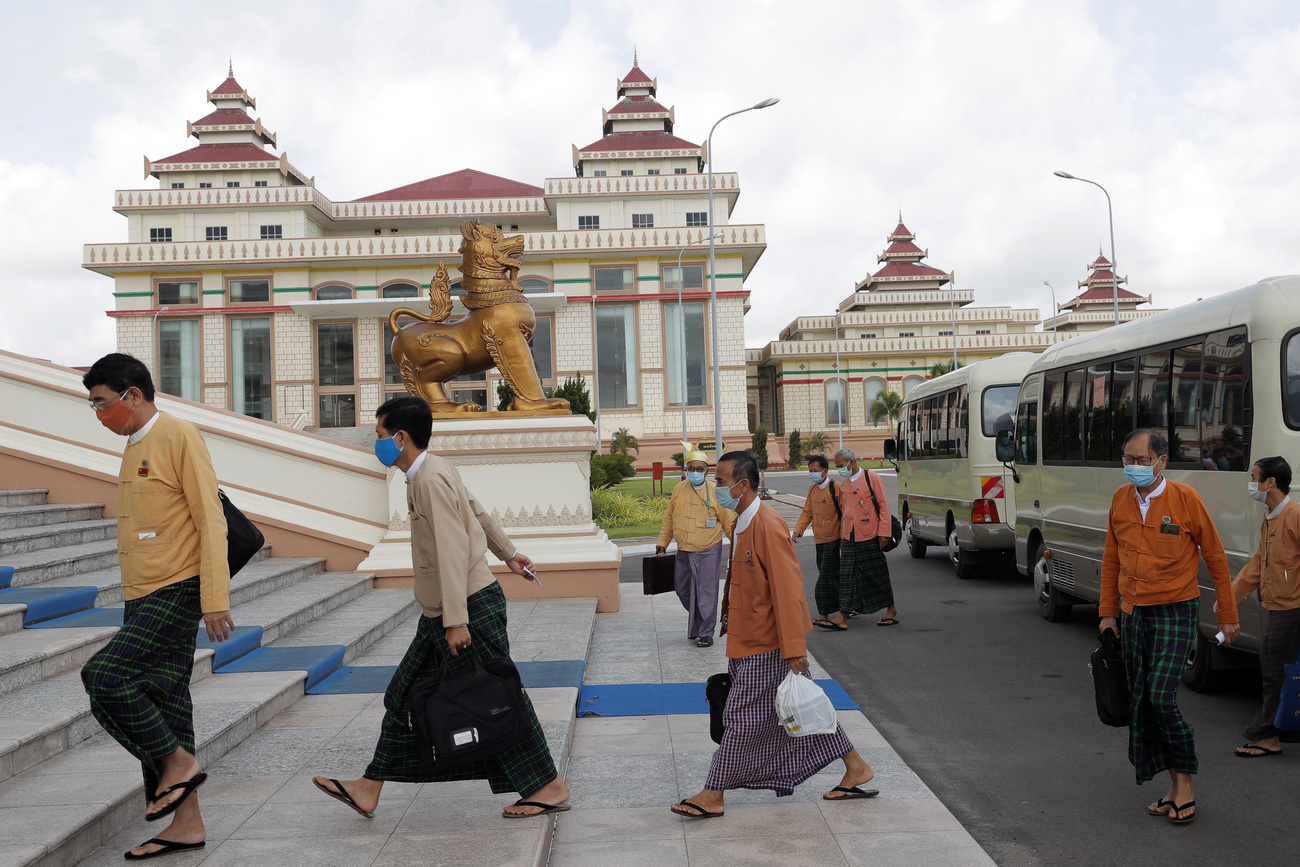
Join the conversation!